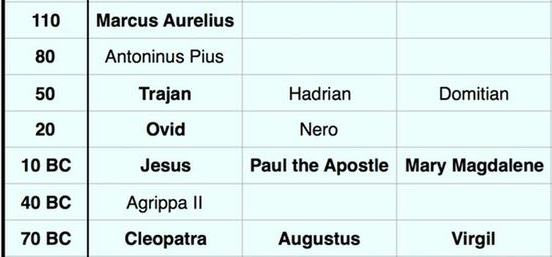In keeping with the History theme, I want to share a few excerpts from Tim Urban's fantastic article, Horizontal History, from the other day.
Most of us have a pretty terrible understanding of history. Our knowledge is spotty, with large gaps all over the place, and the parts of history we do end up knowing a lot about usually depend on the particular teachers, parents, books, articles, and movies we happen to come across in our lives.
I might know that Copernicus began writing his seminal work On the Revolutions of the Celestial Spheres in Poland in the early 1510s, but by learning that right around that same time in Italy, Michelangelo painted the ceiling of the Sistine Chapel, I get a better picture of the times. By learning that it was right while both of these things were happening that Henry VIII married Catherine of Aragon in England, the 1510s suddenly begins to take on a distinct personality. These three facts, when put together, allow me to see a more three-dimensional picture of the 1510s—it allows me to see the 1510s horizontally, like cutting out a complete segment of the vine tangle and examining it all together.
Tim put together an amazing (and huge) image of various historical figures and their relationship to each other. He makes a point in highlighting the fact that people we think of as living in isolated worlds, often worked, and lived around the same time (i.e. Charles Darwin, Mark Twain, Ghandi, Karl Marx, and Nietzsche).
Darwin would have seen Twain as some young kid and he would have shaken his old man fist at Gandhi from the rocking chair on his porch. Meanwhile, Nietzsche would have seen Marx as a guy his dad’s age and Freud as a contemporary, though a bit younger.
One section of the picture that I found super interesting, highlights the relationships between a few famous Romans. In this picture you can see the newly minted Roman Empire, with Augustus as it's first Princeps, grow to it's greatest extend and power, through Trajan and Hadrian, and begin to fall apart, during the time of Marcus Aurelius. It's almost 200 years of history, but only 7 generations.


